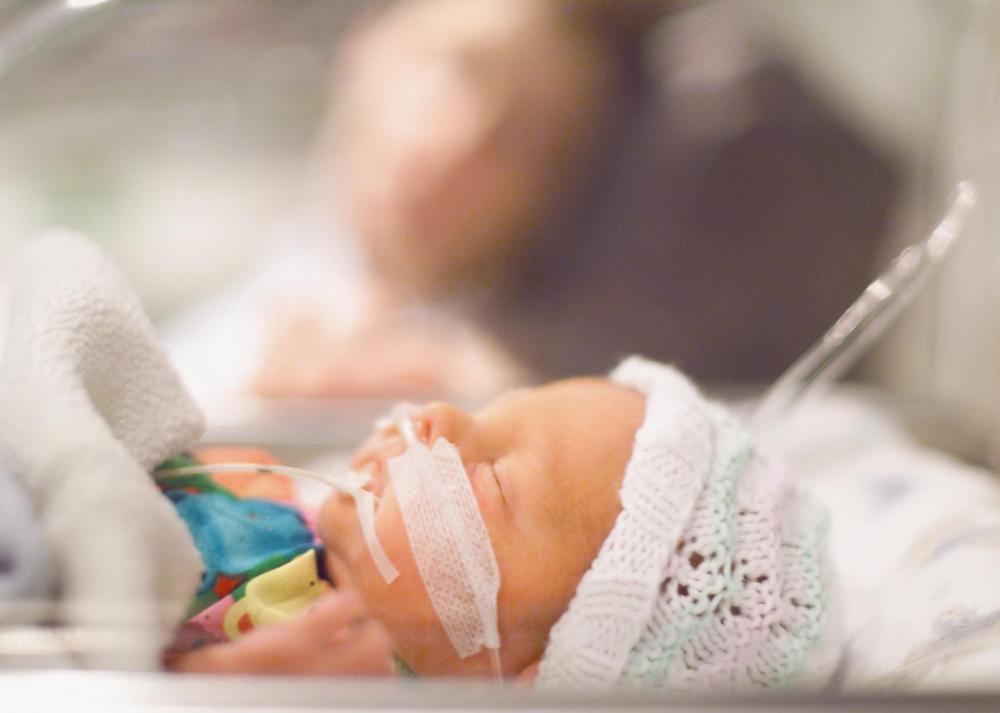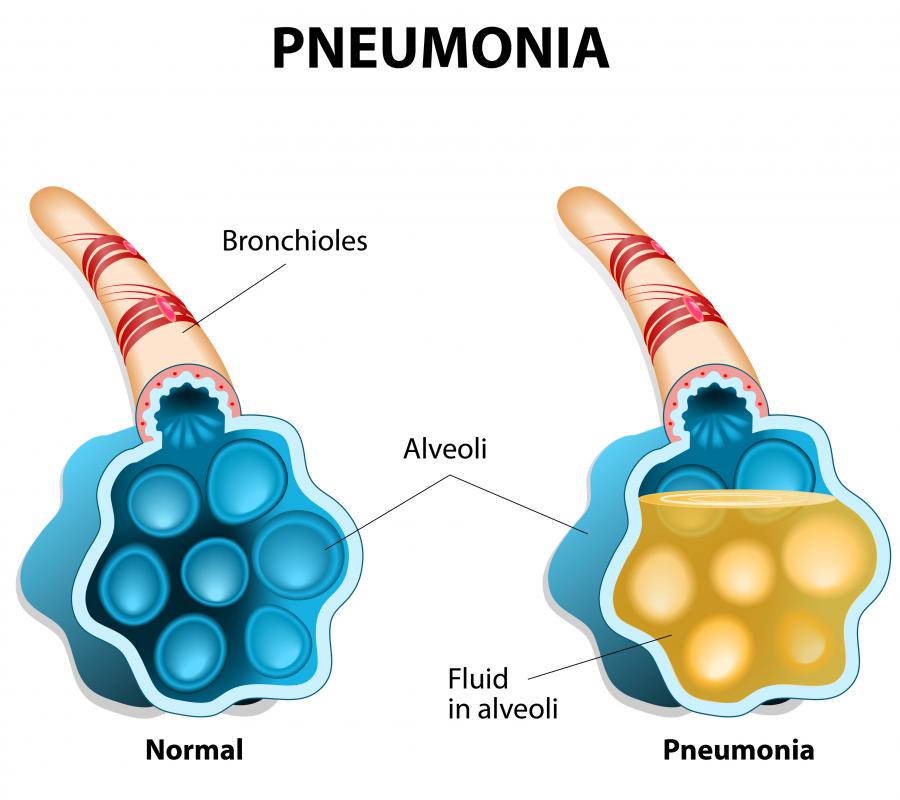At WiseGEEK, we're committed to delivering accurate, trustworthy information. Our expert-authored content is rigorously fact-checked and sourced from credible authorities. Discover how we uphold the highest standards in providing you with reliable knowledge.
What Is Christian Syndrome?
Christian syndrome is a disease that manifests in children as deformities of the thumbs, palate, and arms. The rare disease is also referred to as craniostenosis arthrogryposis cleft palate and adducted thumb syndrome recessive form. Children with this disorder develop at a much slower rate than normal and are often diagnosed with mental retardation. There is no cure for Christian syndrome, and the majority of patients die during their childhood years, many within the first few months of life. As no treatments exist for the disease itself, the only treatments available are those that treat the other medical conditions that arise as a result of having Christian syndrome.
The disease tends to run in families and is considered a genetic recessive disorder. Children afflicted with the syndrome are normally diagnosed right from birth, and most die during their childhood years. Visually noticeable symptoms of Christian syndrome include adducted thumbs, cleft palates, cranial abnormalities, and defects in the bones and joints of the upper limbs. These children also are frequently diagnosed as having respiratory difficulties, such as pneumonia, and are prone to having seizures. Children with this disorder are considered developmentally disabled and are often diagnosed with mental retardation.

For the most part, there is no treatment available for Christian syndrome; only its symptoms may be treated. The only treatments available are supportive measures aimed at keeping the patient as comfortable as possible by addressing illnesses and problems as they arise. For example, many afflicted children will undergo extensive aspiration prevention and respiratory care to prevent the onset of pneumonia, along with other related complications. In some cases, cranial surgery may be an option, as it helps under some circumstances to prolong life and minimize some of the child's developmental problems.

Many children diagnosed with Christian syndrome have small skulls, which are characteristic of this disease. Since the skull is small, as the child grows, the brain is limited in how much it can expand. This restriction on the brain causes more severe mental retardation and sensory disorders. Through surgery, the cranial bone can be reshaped to allow the brain to grow without being inhibited, thus minimizing these problems. Children who require this surgery often undergo the procedure between four and seven months after birth.
AS FEATURED ON:
AS FEATURED ON:














Discuss this Article
Post your comments